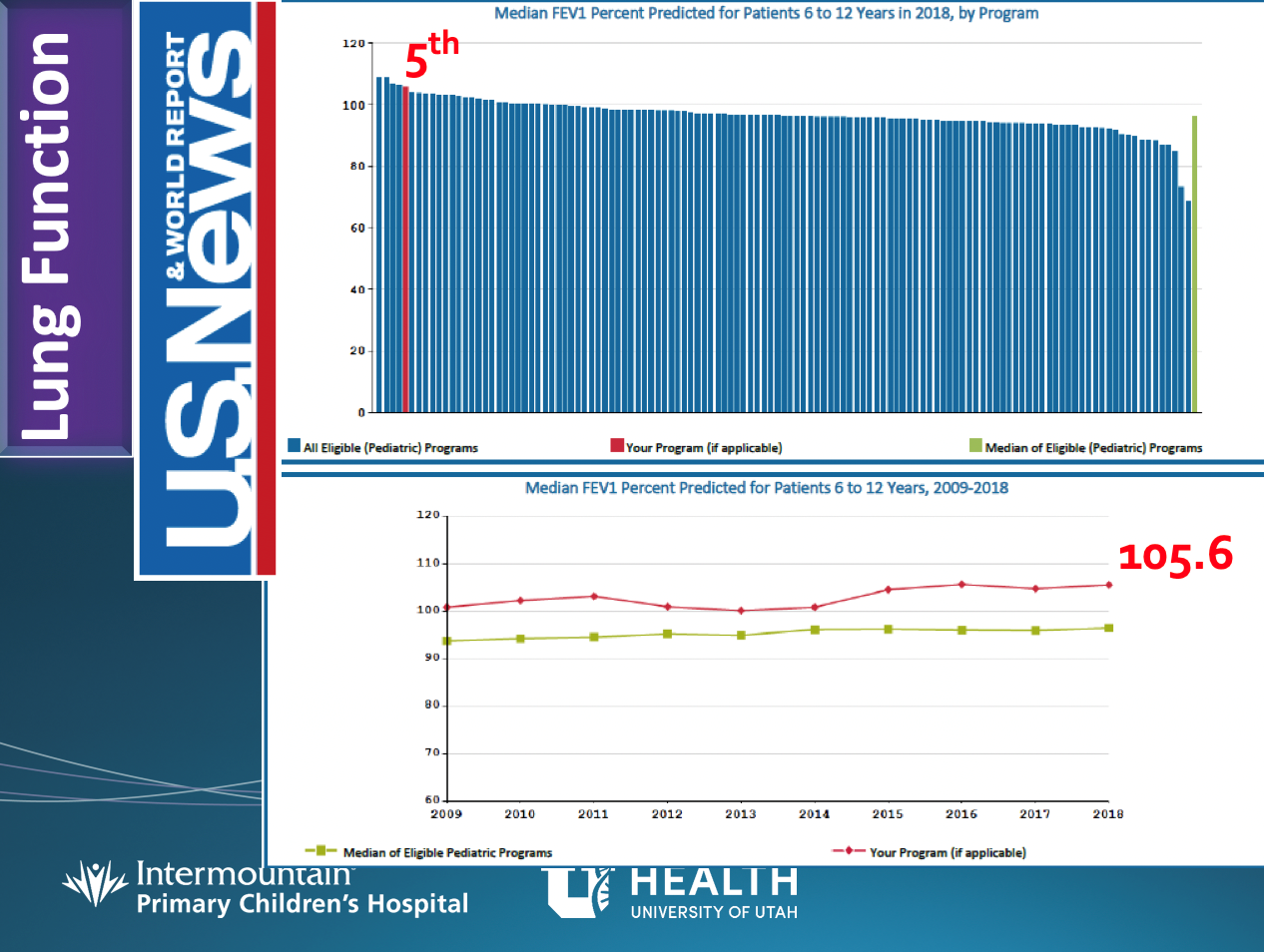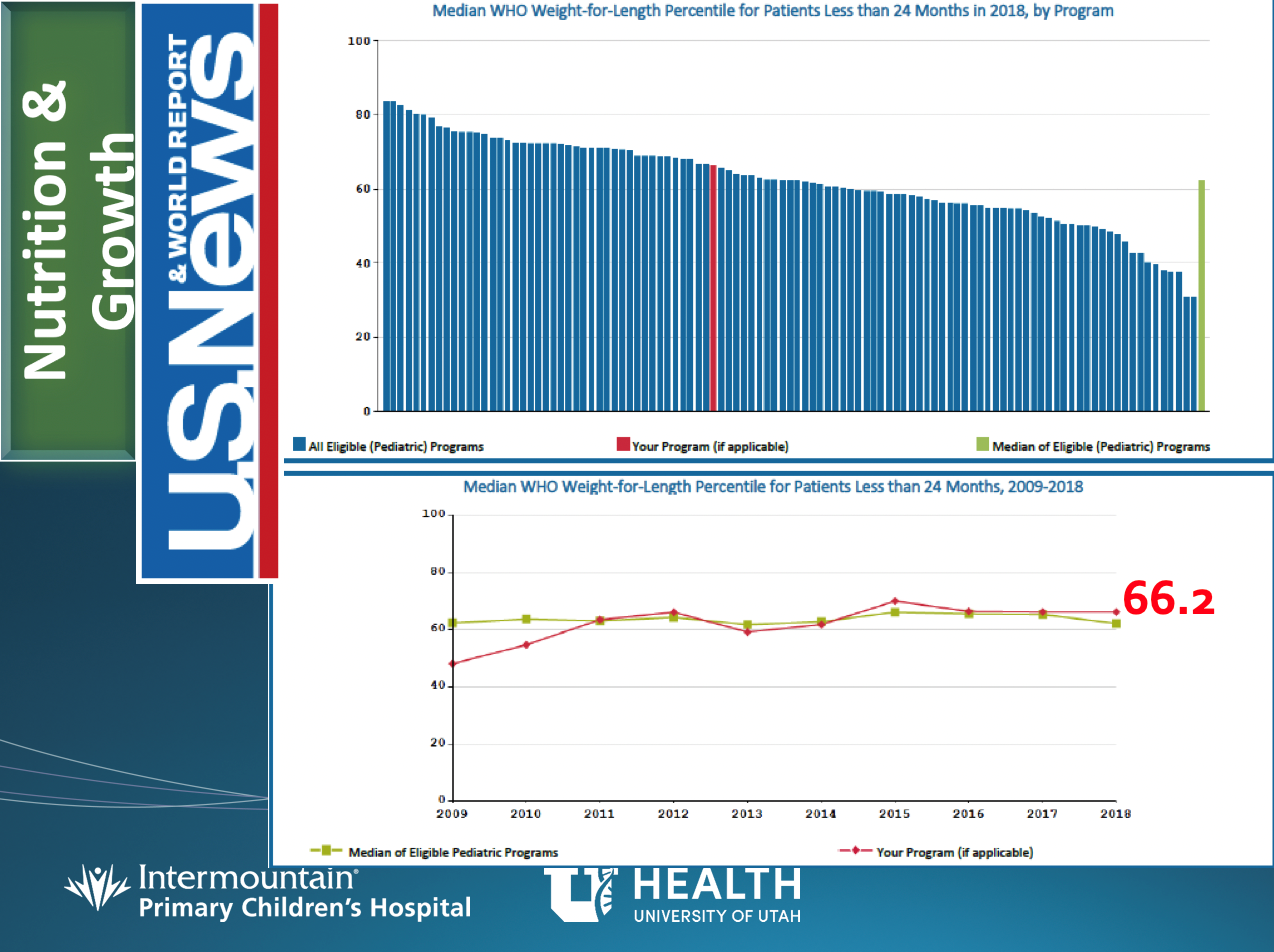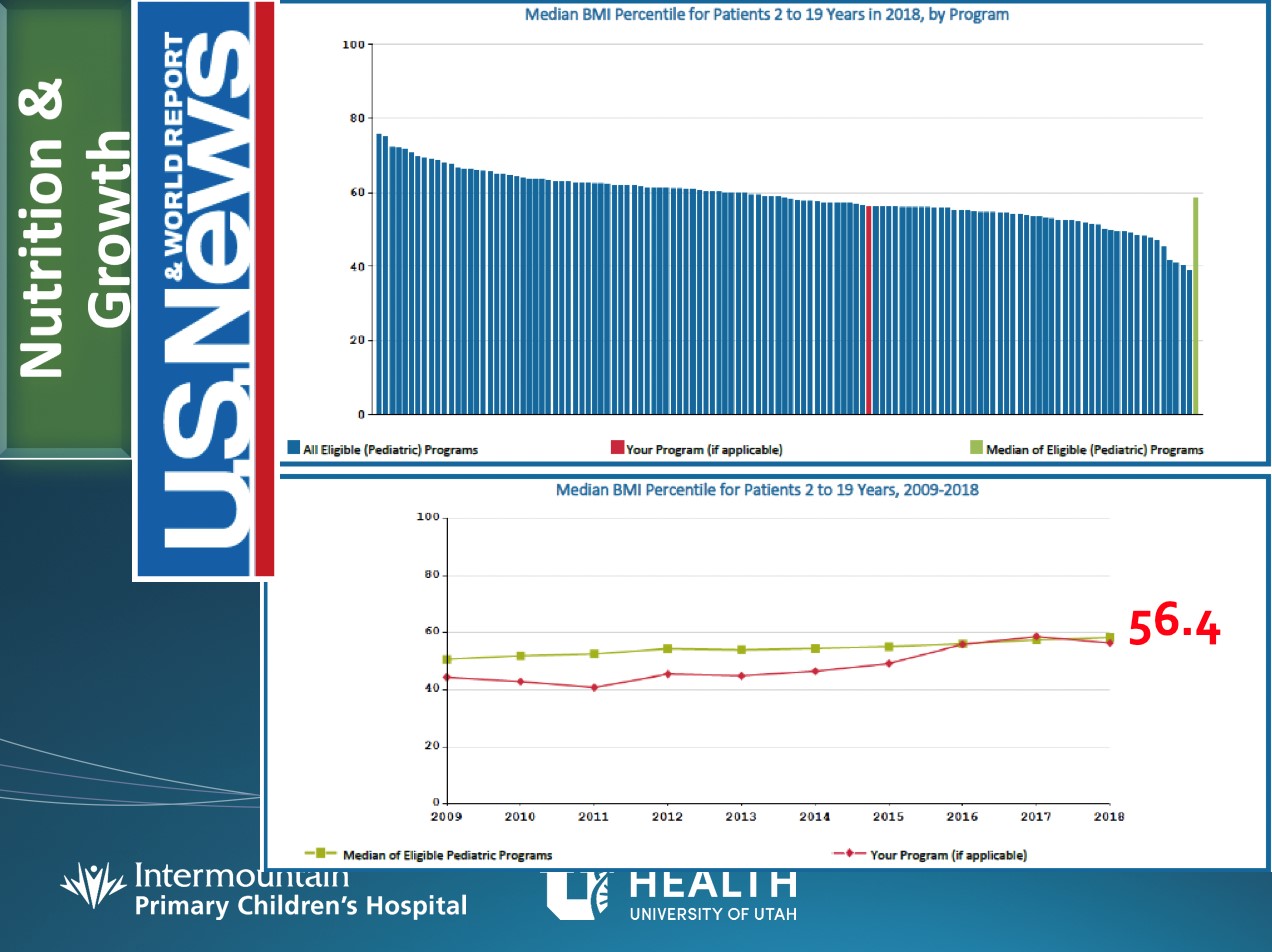Outcomes
The mission of the Cystic Fibrosis Foundation is to cure cystic fibrosis and to provide all people with the disease the opportunity to lead full, productive lives by funding research and drug development, promoting individualized treatment, and ensuring access to high quality, specialized care.
The Cystic Fibrosis Foundation's Patient Registry captures a broad range of data on the health of those living with CF, providing critical information to help advance many important initiatives - from improvements in the quality of CF care and the development of care guidelines to the design of clinical trials to test new CF therapies.
The below information are excerpts from the 2018 Patient Registry Report for our center, with the information regarding lung function and nutritional status highlighted.
Pulmonary Outcomes
Pulmonary function is an important clinical health indicator for people with CF. FEV1 is a measure of lung function. It is the forced exhale volume of air in the first second of an exhaled breath after a maximal inhalation. It is shown as a percent predicted, based on the FEV1 of healthy, non-smoking people of the same age, height, gender and race. The below graphs show our center's median FEV1 percent predicted, displayed in red, ranking for 2018 in patients 6 - 12 of age and 13 - 17 years of age and also our center's trend from 2009 - 2018 according to the CFF Patient Registry.
- Our center is ranked 5th in the nation for lung function in patients 6 - 12 years old among all centers
- Our center is ranked 9th in the nation for lung function in patients 13 - 17 years old among all centers
- Our center is ranked 1st in the nation for lung function in patients 6 - 17 years old in centers with >100 patients.
Nutrition Outcomes
Nutritional Outcomes are a key indicator of health in cystic fibrosis patients. Research suggests that maintaining a healthy weight is also important to lung function. Children and teens with CF need adequate nutrition to grow and stay healthy. Patients less than 24 months of age are assessed using the WHO Nutritional Outcomes. Children and adolescents age 2 to 19 years of age are assessed using BMI percentile. BMI percentile matches a child's BMI to other children in the United States of the same age and gender. The below graphs show our center's ranking for 2018, displayed in red, and also our center's trend from 2009 - 2018 according to the CFF Patient Registry.







